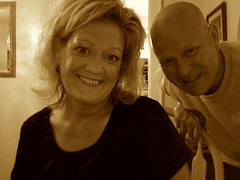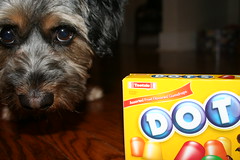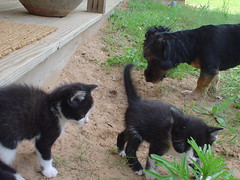Salute to Tito
 It was midnight, quiet and kind of chilly as Log and I walked from the docks to the train station in Split, Yugoslavia.
It was midnight, quiet and kind of chilly as Log and I walked from the docks to the train station in Split, Yugoslavia.The big sign with the picture of the train with the red circle and slash through it – “NO TRAINS” – was still on the door. Jeff and I were exhausted and didn’t know where to go so we sat down in the dirty train station and just waited for the sun to come up.
It was a long night and our patience with the situation and with each other was wearing thin.
The next morning we were told that there was still no Yugoslavian trains or buses running anywhere in the country because of the fuel shortage. Through a series of awkward conversations we found out that an Austrian train MIGHT be coming to Split, then returning to Vienna, that night around 10:00 p.m. but no one seemed to know whether or not this was for certain. We were told be at the train station that night, just in case.
So it was 6:00 a.m. and we had 16 hours to kill! We consulted our trusty guide book to get a beat on some things we might do and headed out to wander the streets. I remember we came upon a really neat open-air market that was bustling and colorful and alive. We bought some blood oranges and a large loaf of freshly baked bread and sat on a bench and ate it all – it was the first food we had eaten in 36 hours and we were hungry.
While eating, I saw something that has really stuck with me. It was small crew of guys patching some potholes in the street. Nothing unusual about that, except they didn’t have any machines with them. They just had a large caldron with a FIRE under it – a real fire with burning logs – and they were stirring the bubbling tar with a long stick. They looked like the male versions of the three witches in MacBeth. They would scoop out that tar and put it in the hole and then spread it around and smooth it out with another stick. It just looked so medieval. Yet another example of how advanced we are in the U.S.A.
Split is another of those ancient cities with an amazing history. Established in the third century, the height of Split’s history came around 300 AD when Roman emperor Diocletian ordered a residence to be built there for his retirement. It took ten years to build this magnificent palace and Diocletian lived there until his death, after which many Roman rulers continued to use it as a retreat.
So, Diocletian’s Palace was tops on our list to see and it was absolutely beautiful. In my opinion it rivaled some of the ruins in Rome because it was so well preserved. Because Log and I had so much time to kill, we spent hours and hours there just hanging out admiring the ancient beauty.
One of my favorite observations of Split was how it had become an unabashed, unashamed, living, breathing alter to Josip Broz Tito, the “Marshall and Supreme Commander of the Armed Forces of Yugoslavia” (1943 – 1980). EVERY place in Split, Tito’s hometown, paid homage to this man. His picture was in every shop window, bus window, tourist attraction, home window and building. His bust, or his statue, was in every public square, park or building front. His face was painted three stories tall on the sides of buildings. You could purchase his likeness on t-shirts and post cards and we read that there were over 20 national holidays in honor of this man. It was hysterical. I regret not buying one of the myriad of Tito trinkets that were available for sale everywhere you went. Tito soap on a rope might have been my favorite.
While at Diocletian’s Palace, Log and I watched a musical play about the history of Split and, sure enough, the whole thing was really a reenactment of Tito’s life. There was some great singing and dancing, though, which helped to energize me a little bit. It was that “Russian” dancing where the guys hold their arms out in front and squat and jump up on one leg while kicking the other leg out with lots of yelling “hey!”. One guy did this about fifty times in a row and it made my thighs hurt just watching.
After our history lesson at the Palace, we walked for a few miles and meandered down to a sandy public beach where we laid down and dozed for a long time in the afternoon. We bought some more bread and cheese for dinner. Log and I had long since run out of things to talk about so we were just quiet and lost in our own thoughts.
Finally, we headed to the train station around 9:00 p.m. with anxious anticipation. We were both exhausted, and if this Austrian train didn’t appear we wouldn’t have a place to stay that night. I was on the verge of tears. But for the first time during our entire trip we lucked out and the train really did arrive and it really did turn right back around to Vienna and we really were able to buy a ticket for – get this – a FIRST CLASS train compartment. No more standing in the hot, dirty walkways for us, no urine soaked seats for me, no hard cargo ship cement this time – we got a real cushioned seat with real air conditioning! First class was all they offered to sell us, but we didn’t argue and it was wonderful. I fell asleep almost immediately, so there wasn’t much of a poetic bidding farewell to Yugoslavia as we chugged out of the station that night.
Fast forward 24 hours later and I had said my good bys to Log, who I didn’t see again for over a year, and was standing in the dark on the train platform in Chambery with my dirty clothes and my dirty backpack feeling relieved to be back. I walked the couple of miles up the hill to the Lefevre’s home, fearful that their vicious German Shepard, Lallica, would attack me when I opened the door that late at night. Given that my command of French was limited, I wasn’t sure how I was going to explain everything to my host family, but they already thought I was kind of weird so I’m sure my spending over a week and a half in Yugoslavia didn't come as a big surprise.
Am I glad I went to Yugoslavia? Mostly yes. Do I think I would have been better suited for spring break in Paris or Rome? Definitely yes. Would I go to Yugoslavia again? Probably – but only now that I can afford to travel comfortably.
And only, only, ONLY if the Croatian – English dictionary isn’t lost on day one.





0 Comments:
Post a Comment
Subscribe to Post Comments [Atom]
<< Home